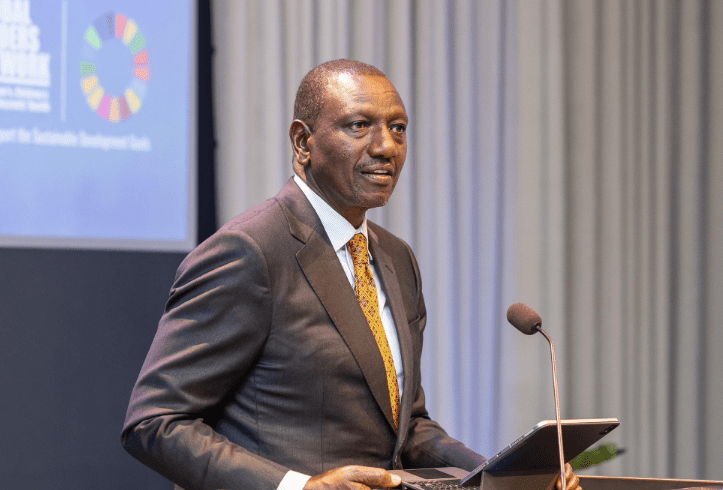Ruto calls for global system change to reflect modernism
By PCS, September 27, 2024President William Ruto has called on the international community to discard the outdated power structure at the United Nations and create a system of international cooperation that reflects the aspirations of every human being.
The President said the global community must embrace a new vision of global solidarity that upholds the principles of equity and inclusivity.
He pointed out that international cooperation is clearly limited and constrained by “entrenched systems and structures” that prevent effective action and meaningful progress.
“Since the last General Assembly, the global situation has deteriorated across multiple fronts: Conflicts have deepened, economic disparities have widened and the climate crisis has intensified,” he said.
Adding: “To address these challenges, we must rethink and reform global collaboration mechanisms, making them more responsive, adaptable and impactful.”
He made the remarks at the United Nations General Assembly in New York when he delivered Kenya’s National Statement.
To ensure international cooperation is meaningful, responsive and impactful, President Ruto called for reforms of the international financial architecture, including climate financing, expansion of the United Nations Security Council to include Africa and fast tracking the achievement of Sustainable Development Goals. He noted that the current international security architecture, represented by the UN Security Council, is “dysfunctional, undemocratic, non-inclusive, unaccountable, autocratic and opaque”.
The President said it is unacceptable that the Security Council excludes 54 African countries, representing 1.4 billion people, while allowing one of the five Permanent Members to veto decisions of all the other 193 Member States.
“We must urgently seek to make the Security Council truly representative, inclusive, transparent, effective and accountable,” he said.
President Ruto also called for reforms of the international financial architecture to ensure it facilitates debt relief, long-term and at scale concessional financing, grants and de-risking lending instruments.
He explained these were essential to increasing investment and developing vital infrastructure, and expanding critical sectors.
“Affordable financing is essential, but so are transformative policies that include fair trade practices, market access, inclusive international tax cooperation, technology transfer and capacity building,” he added.
President Ruto pointed out that Africa has immense untapped potential in clean energy resources that could benefit both the continent and the rest of the world if exploited. “Harnessing this potential is crucial not only for the continent’s economic growth and social resilience, but also for global priorities like accelerating the energy transition, combating climate change and diversifying supply chains,” he said.
The President said “energy-hungry industries, such as data centres, mineral processing and manufacturing”, are seeking clean and affordable sources, which Africa can provide in abundance. He, however, wondered why out of the 500GW of renewable energy added to the global mix in 2023, Africa accounted for less than 3GW.
“How is this possible given the continent’s vast natural resources, skilled workforce,l and massive energy needs? We cannot allow Africa to be left behind once again,” he said
President Ruto urged the global community to also give priority to the actualisation of the Sustainable Development Goals to ensure success that will uplift all nations.
“The achievement of the Sustainable Development Goals cannot be reserved for a privileged few. It must transcend borders and disparities,” he said.
More Articles

